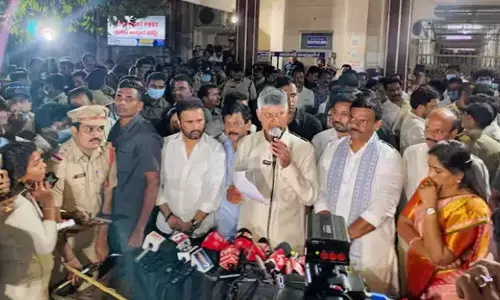Navigating IVF Together: Addressing Male and Female Fertility Challenges

Infertility deeply impacts people's lives and emotions, affecting millions of couples worldwide. According to the World Health Organization (WHO), infertility is defined as the inability to conceive after one year of regular, unprotected intercourse, or after six months for women aged 35 and older.
Infertility deeply impacts people's lives and emotions, affecting millions of couples worldwide. According to the World Health Organization (WHO), infertility is defined as the inability to conceive after one year of regular, unprotected intercourse, or after six months for women aged 35 and older. It is a condition that can affect both men and women equally, with estimates suggesting that around 17.5% of the adult population experiences infertility worldwide. The emotional toll of infertility is significant, often leading to isolation, stress, and anxiety.
Understanding Infertility in Men and Women – Infertility isn't just a women's issue—both partners are affected. About a third of infertility cases come from male factors, another third from female factors, and the rest from combined issues or unknown causes. Effective infertility treatment requires understanding the unique challenges faced by both men and women.
Infertility in Men - Issues with sperm production, shape, or motility often lead to male infertility. The main issues include a low sperm count, poor movement, and abnormal structure. Advancing age, smoking, alcohol consumption, obesity, and exposure to harmful substances such as pesticides or heavy metals can worsen these issues. Health issues such as hormone imbalances, swollen veins in the testicles (testicular varicocele), or past infections may also contribute.
Infertility in Women - Female infertility can result from disruptions in ovulation, fertilization, or implantation. Conditions such as polycystic ovary syndrome (PCOS), endometriosis, and pelvic inflammatory disease (PID) often interfere with these processes. Age is a significant factor, as fertility declines naturally after 30, with a more pronounced drop after 35. Lifestyle factors such as smoking, excessive alcohol consumption, and extreme weight fluctuations also play a role. Structural issues like uterine fibroids or scarring from previous surgeries can further complicate conception.
Addressing Fertility Challenges - Navigating infertility is a journey best approached together. It’s not just about medical interventions—it also involves emotional resilience, mutual support, and informed decision-making. Here are a few strategies to address fertility challenges together:
1. Prioritise Open Communication - Open and ongoing communication is crucial. It's important to share your fears, hopes, and frustrations with each other. Acknowledging and validating one another’s feelings helps build emotional intimacy and minimizes misunderstandings.
2. Consult Specialists as a Couple - Consider seeking advice from fertility experts together. Comprehensive evaluations for both partners are vital to uncover any underlying issues and create personalized treatment plans.
3. Embrace a Healthier Lifestyle Together - Making positive lifestyle changes as a couple can strengthen your bond while boosting fertility. Quitting smoking, limiting alcohol, maintaining a balanced diet, and exercising regularly can improve overall reproductive health. Stress-reducing activities like yoga, meditation, or even walking can benefit both partners.
4. Seek Emotional and Professional Support - Infertility often brings emotional challenges. Consider seeking therapy or counseling, either individually or as a couple, to navigate stress and strengthen your relationship.
5. Understand and Explore Treatment Options - Fertility treatments vary depending on individual needs. Male treatments may include medications, surgery, or sperm retrieval techniques. Female treatments can involve hormonal therapies, surgical procedures, or assisted reproductive technologies like in vitro fertilization (IVF).
6. Stay Flexible and Focus on the Bigger Picture - Parenthood may not follow the path you initially imagined, and that’s okay. Whether through fertility treatments, adoption, or other methods, the journey to building a family is uniquely yours. Embrace the process with an open mind and unwavering support for one another.
Infertility can be a lonely journey, but it’s one couples can face together. By acknowledging both male and female fertility issues, consulting with specialists, and maintaining open lines of communication, couples can work through the challenges of fertility treatments with strength and optimism. While the road to parenthood may take longer or differ from expectations, it remains a dream that can be realized with the right support.
(The writer is a IVF Specialist, Ferty9 Fertility Center, Tirupati)










